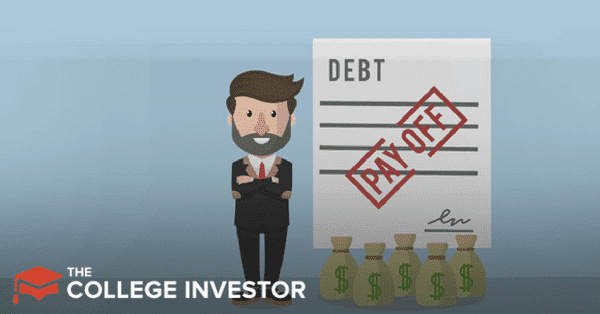
Source: The College Investor
We talk a lot about paying off debt here at The College Investor. One thing we often forget to talk about is what to do once that debt has been paid off.
You see, when you work on a financial goal for a long period of time you often build up in your mind what it will feel like when you accomplish the goal. Then the day comes that your goal is achieved and…………nothing. For many it can feel anticlimactic.
Yes, it’s amazing that you’re now out of debt. BUT, since your focus has been on debt payoff for so long you can feel lost as what to do next. It can be hard to stay motivated.
I’ve been there and paid the price of lots of wasted money while I was trying to figure out my next move. You don’t want to do the same. Here are seven things to do after you pay off your debt.
# 1 – Reassess Your Budget
The first thing you should do is reassess your budget. You’ve had all of your extra money going toward your debt payoff and it’s now time to redirect the money somewhere else. But that doesn’t mean you aren’t allowed to use any of the money for fun either.
If you’ve been working yourself to the bone and pinching pennies over the last several months or years take the time now to figure out how you want to reallocate your income.
If you plan on putting a portion of that money toward things you consider fun like home improvement, clothing or a trip, decide how much that will be. While it’s absolutely okay to cut yourself some slack, if you don’t carefully plan you’ll end up spending all of your extra money on fun stuff rather than just the small portion you were planning.
Remember, using a tool like Personal Capital is a great way to keep track of your budget for free.
# 2 - Increase Your Savings
If you’ve been living on a starter emergency fund while paying down your debt then there’s no doubt, now is the time to beef it up.
If your emergency fund is full you can also consider things like car savings, a house down payment or saving for a debt free Christmas or vacation.
Check out these accounts to get started: Best High Yield Savings Accounts.
# 3 – Put More Toward Retirement
When I was working on building up my finances to a level I considered stable one thing I definitely slacked on was retirement savings. If you’re like me now is a good time to increase your contributions.
Even increasing your retirement savings by 5 or 10% can go a long way. This is also one of our favorite strategies for reducing the taxes you have to pay before the end of the year.
# 4 – Look Into Other Investments
Now that you have more money freed up each month you have the freedom of looking for ways to earn even more. One of these methods could be through alternative investments.
None of these ideas are for everyone but if interested here’s a list of things to consider:
Be sure to thoroughly research any new investment idea. Learn as much as you can before investing large amounts!
# 5 – Start A Side Business
When you’re saddled with debt taking any type of risk with income can seem scary. Perhaps that debt has held you back from trying out a new side business idea you’ve been interested in? If so, now is a good time to get your feet wet and give your idea a fair try.
(If you need some side business ideas you can browse dozens of ideas in our earn more archives!)
# 6 – Pay Off Your Mortgage
The mortgage is usually the last debt to be paid off. If you’re debt free sans the mortgage you might consider tackling this next.
Here are ten ways to pay off your mortgage faster.
# 7 – Stay Away From Future Debt
You’ve worked so hard to get rid of your debt – DO NOT let it come back. Keep your cash savings high so that you can cover emergencies and plan for future purchases.
Don’t rely on your credit cards or personal loans for anything. In fact, if credit cards are what got you into debt it may be a good idea to get rid of them altogether!
Stay Goal Oriented
It was easy to stay focused on paying off your debt (most of the time) because you had a strong goal. You knew exactly how much debt you had to pay off and could calculate how much time it would take based on your extra monthly cash flow.
That goal kept you motivated.
If you want to keep improving your personal finances stay goal oriented. While it’s perfectly fine to loosen the reigns a bit you’re going to need to set yourself strong goals to stay focused on the end game.
If you’ve paid off your debt I’d love to know what steps you took to prevent lifestyle inflation.

Alexa Mason is a freelance writer and wanna be internet entrepreneur. She is also a newly single mom to two beautiful little girls. She chronicles her journey as a single mom trying to make it big at www.singlemomsincome.com.
Editor: Clint Proctor Reviewed by: Chris Muller